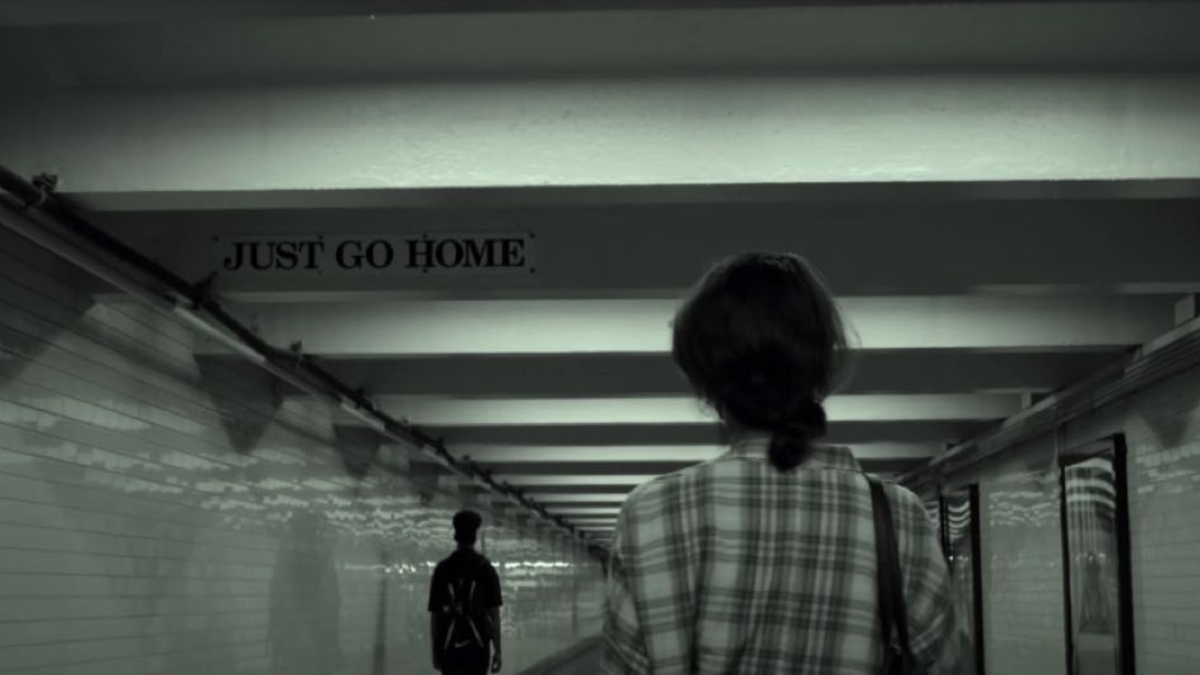A movie about filmmaking dreams in its lowest tide
This article may contain spoilers.
New York City – a sight that gives optimism, especially when your point of view is from the outside looking in. “No New Wave,” the debut feature film by Ziwei Yao, opens with a scene on a subway train riding into the city, overlooking the Brooklyn Bridge and the magnificent skyline of Manhattan’s downtown.
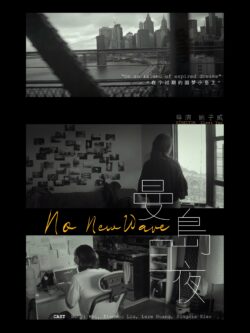
(Image Credit: Ziwei Yao/No New Wave)
On a rooftop wedding, Ginny (Wei Wenyi) runs into an old acquaintance from film school, Ah Wei (Laze), who is the photographer. There is clear excitement for them to see each other once again, but Ah Wei is pulled away to continue working, leaving Ginny to socialize on her own. We get a sense of how alone and awkward Ginny feels in the city.
In several group settings throughout the film, we witness Ginny’s failure to connect with new people. Although many of the people Ginny meets are also Asian, they all have different backgrounds and don’t relate to her desire to be a filmmaker, and she doesn’t relate to their world either. In this, Yao establishes distance within the fragmented Chinese and Asian communities. Because of this, Ginny and her friends debate on going back home to fulfill their family duties rather than their personal dreams.
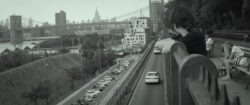
Beautiful views of New York are featured in “No New Wave.” (Image Credit: Ziwei Yao/No New Wave)
“No New Wave” emphasizes how difficult it can be working in the filmmaking business, which I’m sure everyone can agree with. Ginny’s response when asked why wants to do this: “I guess I like storytelling. It’s to find my voice.” She wants to tell stories of people in the industry who share the same struggle. In a scene where the relationship between Ginny and Ah Wei grows, he realizes “talent on its own is not enough.” There’s so much more that must go with making your art in order to be “successful.”
Halfway through, the film resets itself, revisiting the opening shot of the Brooklyn Bridge, but this time, the train moves in the reverse direction. We meet Ah Yao (Tianmou Lou), Ginny’s boyfriend and now get a glimpse of a different side of her life. Although they decide to move in together, we witness their growth in different directions, and their relationship begins to unravel.
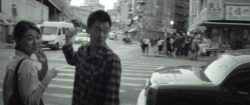
Wei Weyni as Ginny and Tianmou Lou as Ah Yao in No New Wave (Image Credit: Ziwei Yao/No New Wave)
Unable to make a splash in New York as a filmmaker, Ginny decides to return home. Yao takes us on another train ride, this time to the AirTrain at John F. Kennedy airport, and this time, to say goodbye.
I got to chat with Yao about his filmmaking process.
Congratulations on “No New Wave” getting into AAIFF. How does it feel knowing that audiences get to watch it?
It’s a confidence booster. The film is four years in the making. To finally get it screened, it’s giving me a lot of confidence to believe in this film and believe in my own capabilities for the next one.

Behind the scenes: Director Ziwei Yao and star, Wei Weyni as Ginny (Image Credit: Ziwei Yao/No New Wave)
Why did you choose to show Ginny’s story in two timelines?
After I got into editing, I realized that no one is possibly going to understand the story with Boy A, Boy B, and problems at work, your career, this and that. You’ll get lost somewhere. Some other films I watched had a structure with Part A and Part B, which are under the same timeline, but you separate them by character. It makes it easier to understand.
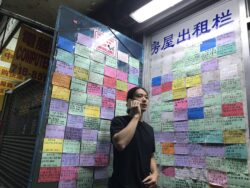
Behind the Scenes: Laze as Ah Wei in No New Wave (Image Credit: Ziwei Yao/No New Wave)
What made you decide to start with one timeline vs the other?
In the first part, it’s about the situation and the status quo, the conditions, and the situation they are living in. The second part is much more of a narrative and everything starts to settle down. I think the second guy, Ah Yao, has a vibe people can follow. Plus, it provides some with a kind of surprise to the audience that Ginny isn’t exactly who you think she is.
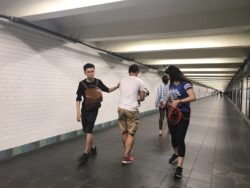
Director Ziwei Yao and crew filming The Commuter’s Lament / A Close Shave corridor (Image Credit: Ziwei Yao/No New Wave)
The final scene takes place in the corridor between the Seventh and Eighth Avenues of the Times Square/42nd Street Subway station. You show Ginny walking through with the famous poem “The Commuter’s Lament/A Close Shave,” written by Norman Colp. What does this mean to you?
I always felt that one day, I had to shoot this in one of my films because it gives me the vibe of New York. Everyone is someone from the outside. And everyone is very tired. It tells you to go home because you’re tired. But at the end, it tells you to do it again and keep on fighting. And that’s like storytelling. You get negative comments at the beginning, and then they slowly bring much more encouraging words at the end. At least Ginny is still moving on, and that’s a good thing to know.
“No New Wave” screened at the 45th Asian American International Film Festival.

